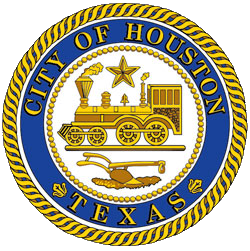Project Will Restore Over 1,000 Acres of Habitat and Plant 200,000 trees in City Parks
HOUSTON – The Houston Parks and Recreation Department is announcing a new initiative that is expected to have a major ecological impact on the City of Houston. The Riparian Restoration Initiative will target 70 parks adjacent to bayous and tributaries for the revitalization of forested riparian buffers by removing invasive species and installing a diverse mix of native trees and shrubs. Riparian zones are narrow strips of land adjacent to streams and rivers that act as buffers between upland areas and open water. The goal of the project is to help mitigate flooding, improve water quality, reduce erosion, and create wildlife habitat.
“This is an ambitious initiative targeted by our Parks and Recreation Department that will result in the restoration of many neighborhood and community parks throughout Houston,” says Mayor Sylvester Turner. “The restoration projects are another important step in creating a more resilient city with parks that people can visit and enjoy. The projects also will help to protect adjacent properties from flooding, improving the quality of our bayous, and reducing heat from surrounding development.”
The Riparian Restoration Initiative will result in the restoration of over 1,000 acres of habitat in city parks, along with the planting of 200,000 native trees in Houston parks and greenspaces by 2030.
“Many people are not aware how important our riparian zones are to the City,” says Steve Wright, Director, Houston Parks and Recreation Department. “It’s our hope that this initiative and the new trees to be planted will preserve our park habitats and protect the City from flooding and other natural environmental dangers.”
Many of Houston’s riparian buffers have been removed or degraded over the years due to development or stream channelization. This initiative aims to have a lasting impact on Houston’s environmental future.
“This initiative is the first step for the Houston Parks and Recreation Department to prioritize the conservation of natural habitat in parks,” says Kelli Ondracek, Natural Resources Manager, Houston Parks and Recreation Department. “The work will not only focus on improving existing riparian habitat in parks, but will also include the creation of riparian habitat that was cleared long ago.”
The Riparian Restoration Initiative, along with our annual Arbor Day Celebration, are among the reasons why the Arbor Day Foundation, in partnership with the U.S. Forest Service and National Association of State Foresters, has designated Houston as a Tree City USA for 34 years consecutively.
